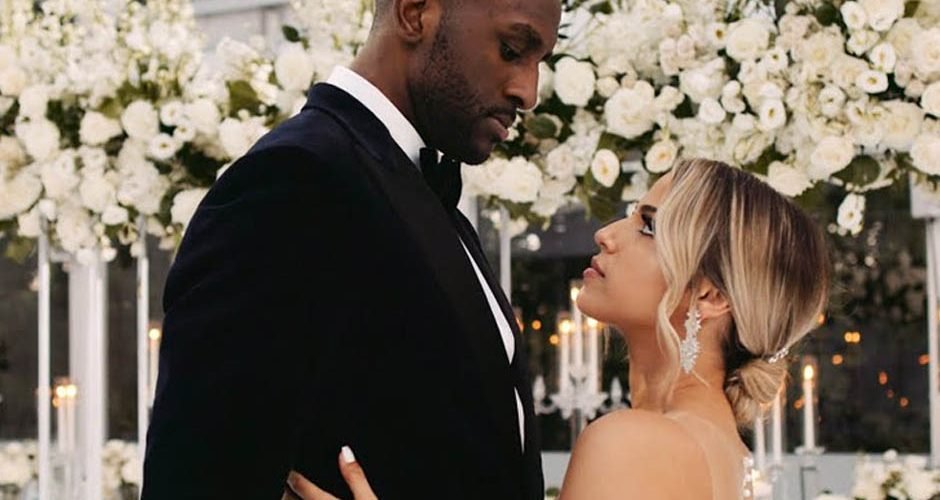Tying the knot is one of life’s most cherished events, and in the picturesque backdrop of Scotland, it becomes nothing short of a fairy tale. However, with fairy tales come unexpected twists, and for a couple planning their big day, it’s vital to consider wedding insurance to safeguard against those unforeseen events.
Wedding insurance in Scotland is not just a commodity; it’s a shield that brings peace of mind, allowing couples to focus on what truly matters – celebrating their love.
Table of Contents
The Importance of Wedding Insurance
Wedding insurance serves as a pivotal piece in the wedding planning puzzle. It ensures that the financial investment in your nuptials is protected. In Scotland, where the weather can go from serene to stormy in a blink, and venues range from historic castles to scenic outdoor spaces, wedding insurance is a safeguard you shouldn’t overlook.
What Does Wedding Insurance Cover?
Wedding insurance policies typically offer a range of cover levels to suit different budgets and needs. These levels can protect various aspects of your wedding day:
Ceremonial Attire: This includes kilt hire, wedding dresses, and yes, even ceremonial swords that might be part of your Scottish wedding. In the event of loss, damage, or other mishaps, your policy can cover the costs to replace or repair these items.
Wedding Rings: Those symbols of eternal love can also be covered. If wedding rings are lost or stolen, a good wedding insurance policy will take care of the replacement costs.
Wedding Gifts and Cake: Gifts and the cake are wedding essentials. If they’re stolen or damaged, insurance can provide financial cover to replace or repair them.
Public Liability: Essential for any event, public liability cover protects you if someone is injured or property is damaged as a result of your wedding.
Supplier Failure: Reliable suppliers are key to a successful wedding, but sometimes things go wrong. If a supplier lets you down, wedding insurance can cover the financial failure, allowing you to arrange alternatives.
Extreme Weather: If extreme weather conditions, such as a fierce Scottish gale, prevent your wedding from taking place, insurance can help rearrange the event.
Cancellation Cover: If the wedding needs to be canceled due to reasons like the venue closing, a close relative falling ill, or even jury service, you can be compensated for lost deposits and other costs.
Choosing the Right Provider
Finding the best wedding insurance provider involves researching and comparing what’s out there. The best wedding insurance providers offer transparent terms and conditions, a variety of cover levels, and a history of reliable customer service. Please note, that when you receive wedding insurance quotes, make sure to check the fine print for any exclusions that may apply and ensure the policy wording aligns with your specific needs.
Personal Liability and Additional Premiums
Personal liability is an area you can’t afford to overlook. This part of your policy protects you from legal costs and expenses if someone gets hurt or property is damaged. Most wedding insurance policies will include this, but check for the cover levels and whether an additional premium is required for increased cover.
The COVID-19 Clause
The emergence of COVID-19 has introduced a new dimension to wedding insurance. Most providers have updated their policy offerings to include some level of COVID-19 cover, such as cancellation due to illness or lockdown restrictions. Given the pandemic’s impact on events, this coverage has become a cornerstone of contemporary wedding insurance policies.
Legal Expenses and Financial Losses
Legal expenses might be incurred if you have disputes with suppliers or venues, and these can be covered under your insurance policy. Furthermore, the potential financial losses associated with such disputes can be mitigated with the right insurance in place.
How to Buy Wedding Insurance
When you’re ready to buy wedding insurance, consider the overall cost of your wedding to determine the level of cover you need. It’s often recommended to buy wedding insurance as soon as you start making deposits or purchases for your wedding, which could be up to two years in advance. Make sure you obtain policy documents that clearly outline your cover levels and keep them safe.
Remember, the aim of wedding insurance is not to add to the complexities of wedding planning but to provide cover and comfort, ensuring that the only thing you need to worry about is enjoying your special day. With the right wedding insurance policy in place, couples can rest easy knowing that even if things go wrong, they have a backup plan that secures their interests and finances.
Tailoring Your Wedding Insurance Package
Once you’ve decided to protect your special day, selecting the appropriate wedding insurance package becomes the next crucial step. Wedding insurance in the UK offers various levels of cover, ensuring there’s a policy to suit every size and style of celebration – whether it’s an intimate ceremony in the Scottish Highlands or a grand affair in the heart of Edinburgh.
Understanding Levels of Cover
The levels of cover offered by wedding insurance packages can range from basic to comprehensive. A standard wedding insurance policy may cover the essentials like wedding attire and the wedding cake, while premium packages might include additional items such as ceremonial swords or heirloom jewelry. When choosing your level of cover, consider the total value of all aspects of your wedding and make sure the policy limits reflect this.
Wedding Cake: The wedding cake is often a centerpiece of your reception. From traditional fruitcakes to modern sponge tiers adorned with intricate icing, wedding insurance can cover the cost of replacement or repair if the original cake is accidentally damaged.
Wedding Attire: The bridal gown and kilts for the groom and wedding party represent a significant financial outlay. Insurance can help recoup costs for attire that’s lost or damaged. Make sure the level of cover matches the value of your garments, especially if you opt for designer or custom-tailored outfits.
Wedding Party: If a key wedding party member can’t make it due to unforeseen circumstances like illness or travel disruptions, your insurance may help cover the costs of rearranging the wedding. It’s moments like these where the policy proves its value, ensuring that the absence of a best man or maid of honour doesn’t lead to financial strain.
Additional Considerations
- Insurance Premium Tax: This is a tax on insurance premiums, including wedding insurance, and varies depending on the policy’s cost. It’s a mandatory fee and is typically included in the quoted price of the insurance.
- Consumer Credit Act: When paying for your wedding insurance premium using a credit card, you’re afforded additional protections under the Consumer Credit Act. This act can provide cover for purchases between £100 and £30,000, which includes things like deposits for your venue or catering.
Going Beyond Borders: Wedding Insurance Abroad
For those planning to say ‘I do’ under foreign skies, wedding insurance abroad is an indispensable component. This specialized insurance takes into account the complexities of overseas ceremonies, from legalities to logistics.
- Standard Wedding Insurance Policies often don’t automatically cover weddings abroad, so you’ll need to look for a specialist policy or an add-on to your UK wedding insurance. This ensures things like travel delays, loss of essential documents, and supplier failures specific to destination weddings are covered.
When planning a wedding abroad, it’s also wise to look into separate travel insurance to cover aspects outside the remit of wedding insurance, such as emergency medical expenses or lost luggage during your journey.
Personalizing Your Wedding Insurance
When selecting your wedding insurance package, consider personal touches that make your day unique. Things like custom decorations, unique wedding cakes, or specific entertainment might require additional cover. Speak with your insurance provider to ensure these items are included in your policy. Tailoring your insurance to include such specifics will mean that even the smallest details are protected.
Remember, the key to choosing the best wedding insurance package is to match it with the unique elements of your day. By understanding the levels of cover and reading the fine print, couples can confidently navigate the insurance landscape, ensuring that every aspect, from the wedding cake to the ceremonial attire, is safeguarded.
Deciphering Policy Details and Making Claims
Selecting a wedding insurance policy is just the first step. Understanding the policy documents and knowing how to efficiently make a claim are equally important. Let’s break down what you should look out for and how to proceed if you need to use your wedding insurance.
Reading the Fine Print
- Policy Wording: Every wedding insurance policy comes with its own set of terms and conditions. It’s essential to read this policy wording thoroughly to understand what is and isn’t covered. Pay close attention to exclusions, as these can significantly impact your cover.
- Cover Levels: Make sure that the cover levels reflect the overall cost of your wedding. If your wedding budget increases, you may need to adjust your policy accordingly.
- Additional Premium: Some policies may require an additional premium for certain cover levels or add-ons. This is common for things like marquee cover or public liability for additional guests.
Navigating Claims and Utilizing Your Coverage
When things go wrong, knowing how to navigate the claims process can alleviate stress:
- Contact Your Insurer Promptly: As soon as you realize there may be an issue that requires a claim, contact your insurance provider. They can guide you through the next steps and provide the necessary claim forms.
- Documentation is Key: Keep a record of all receipts, contracts, and correspondence with suppliers. You will need these to substantiate your claim.
- Supplier Failure: If a supplier lets you down, wedding insurance can cover non-refundable deposits and additional costs to arrange alternatives. Understanding your policy’s stance on supplier failure is crucial.
- Stolen or Damaged Items: If your wedding gifts, rings, or attire are stolen or damaged, your policy may cover the costs. Ensure to file a police report if necessary, as this will be required when making your claim.
Choosing the Right Wedding Insurance Provider
With a variety of providers out there, it’s essential to pick one that offers the best wedding insurance package for your needs:
- Best Wedding Insurance Provider: Do your research and read reviews to find the best wedding insurance provider for you. Look for companies with good customer service records, as this will be beneficial if you need to make a claim.
- Insurance Premium Tax: Included in your premium is the Insurance Premium Tax (IPT). This rate is set by the government and is the same across all providers, but ensure that the quoted price includes this tax.
- Consumer Credit Act Protections: If you pay for your policy using a credit card, you have additional protections. This can be an added safety net on top of your wedding insurance.
Maximizing Peace of Mind
- Peace of Mind: Ultimately, the goal of wedding insurance is to provide peace of mind. A wedding is an investment, and insurance ensures that unforeseen events do not lead to financial losses.
- Make Sure to Update: If plans change or you add more elements to your wedding, make sure to update your insurance policy. You don’t want to be left underinsured.
- Public Liability Cover: This is particularly important if you’re having a large wedding or if your ceremony or reception is in a public place. Check if your policy includes this and what the cover level is.
While the prospect of dissecting insurance documents and pondering potential mishaps is far from the romantic aspects of wedding planning, the reality is that having a robust wedding insurance policy in place can be the difference between a calamity and a mere inconvenience. Wedding insurance in the UK, tailored to your individual needs, can protect you against the unpredictable, leaving you free to enjoy your special day with confidence and security.
Remember, when considering wedding insurance, it’s not just about the cheapest price but the right coverage for your wedding. With wedding planning often starting up to two years in advance, circumstances can change, and having a policy that can adapt or provide comprehensive cover is invaluable. Always read the policy documents carefully, understand the cover levels, and check the terms and conditions, including any additional premiums for enhanced cover options.
Frequently Asked Questions
How much is wedding insurance on average?
The cost of wedding insurance in the UK can vary widely depending on the level of cover you choose and the provider. On average, you could expect to pay anywhere from £50 to over £200. Factors influencing the price include the size of your wedding, the location, and additional coverages such as marquee or public liability insurance. It’s always best to get several quotes and compare cover levels to ensure you’re getting a good deal.
Is it worth getting wedding insurance?
Most couples find that wedding insurance is a worthwhile investment. Although it’s an additional expense, it can save significant financial stress should something go wrong. With the average cost of weddings being quite substantial, insurance is a small price to pay for peace of mind on what should be the happiest day of your life. It covers everything from venue closure to a key member of the wedding party falling ill, which could otherwise lead to financial losses.
How much is average wedding insurance in the UK?
Similar to the general price range, the average wedding insurance in the UK tends to hover around £50 to £200. The variance is based on the size of the wedding and the chosen cover. Some insurers offer tailored packages that can adjust to the scale and specific needs of your wedding, potentially altering the average cost based on your personal circumstances.





